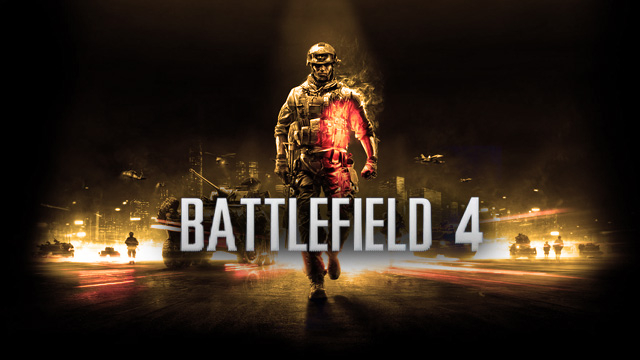Oh my, for how much longer is this going to keep happening? Close to five years ago something ground-breaking happened in the world of shooters. Suddenly, shooters weren’t about trudging through a series of corridors and mowing down all opposition with futuristic weapons in a sci-fi setting like they had for so long ala Halo, Half-Life, Doom, and so on. Instead, at this turning-point shooters were about something entirely else; they were about funneling down players in linear environments and throwing a glut of scripted set-pieces at them. These sequences include the control being wrestled away from the player so they can ogle at stuff that’s blowing up in spectacular fashion. Also, ten-hour single-player campaigns where suddenly a thing of the past.
After the breakout success of Call of Duty 4: Modern Warfare almost every shooter has tried to emulate this seemingly simple approach to designing shooters. Such games include Homefront, Medal of Honor and even the Battlefield series, who after going head-to-head against Modern Warfare 3 with Battlefield 3 last year is now releasing its fourth iteration come next year. I honestly could not feel less excited.
It’s not that Battlefield 3 was a bad game; as a matter of fact it was my favorite multiplayer shooter of last year. The only problem is that EA has an uncanny ability to take anything that’s even remotely exciting and ram it into the ground by way of excessive milking. It’s something that doesn’t stray too far from what Activision has been doing since of Call of Duty’s inception back in 2007. Both publishers are looking to release at least one military-oriented shooter every year: this year being Black Ops II and Medal of Honor: Warfighter, both of which are games that are likely going to (as always) be top sellers and wind up being the most played online game by the end of the year, with Halo 4 serving as the only other real contender to the throne.

As a consumer, I find this to be a disgusting way of forcing as much money out of my pocket as possible – because unless I’m being the craziest and most ridiculous speculator out there; both publishers are going to keep pouring out lackluster DLC packs until the next big military shooter come out, which in this case will be Battlefield 4; a game that by the time of its release will compete with yet another Call of Duty game. I can just smell it in the air now; the fanboy wars, more tiring YouTube commentary videos, more controversy about “video-game violence” and an endless stream of overpriced DLC-packs that are released at an infuriating pace. The current state of shooters is one in desperate need of change and it needs to happen soon.
One thing that could be changed right off the bat is the actual way that shooters are designed. Developers should start to adhere more to games like Deus Ex as well as the upcoming Dishonored, both of which are titles that incorporate an absolute rarity in the genre; player choice. These FPS examples offer different approaches to gameplay – like guns blazing, non-lethal, subterfuge and stealth— which greatly heightens the game and offers a far more dynamic and competent experience. A mine cart-esque experience with lots of pretty explosions in 2012 simply doesn’t belong, it’s a thing of the past and developers should find new ways of moving on.
Gamers who (like me) absolutely adored the first Modern Warfare have also grown up and moved on, and thus our standards have been set higher. Video games are a fantastic medium in which you’re able to not only tell stories, but also be part of them by changing the outcome along the way. Shooters shouldn’t skimp in this department. Offering story-based choices is an effective way of creating immersion and it shouldn’t be relegated to just open-world games and role-playing titles. In modern shooters like Battlefield 3 where terrorist leaders are at large and the stakes are high, incorporating ways to implement story choices can be wonderful traits. Interestingly enough, the upcoming Black Ops II will feature a branching story-path and allow for choices and different endings – exactly what both the franchise and the genre as a whole could greatly benefit from.
Then there’s also the scale. Shooters don’t always have to be a linear path riddled with gauntlets of enemies – they can be open and expansive and allow for exploration and flexibility. Crysis 2 impressed me thoroughly with its intricate, vertical gameplay that allowed for dozens of different playstyles. Players want choice and if this could persist in the shooter genre, then it could see some phenomenal improvements. Dishonored, Bioshock Infinite and Borderlands 2 all have potential to shape this stagnating genre and if more developers could jump on the same bandwagon, then I’d be more than happy to call myself a dedicated first-person shooter fan once again.